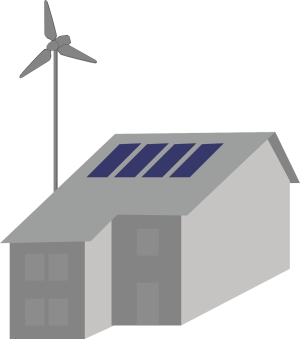Introduction
Living off-grid has become an increasingly popular lifestyle choice for those seeking independence, sustainability, and a deeper connection with nature. In this blog post, we will explore the concept of living off-grid, its benefits, and the unique experiences it offers. Join us as we delve into the world of off-grid living and discover the joys that come with embracing a simpler, self-sufficient way of life.
1. Disconnecting from the Grid
Living off-grid means disconnecting from traditional utility services such as electricity, water, and gas. Instead, off-gridders rely on alternative energy sources like solar panels, wind turbines, or hydroelectric power. This newfound independence allows individuals to reduce their carbon footprint and become more self-reliant.
2. Embracing Sustainability Off-Grid
Off-grid living promotes sustainable practices by encouraging individuals to reduce, reuse, and recycle. With limited resources, off-gridders learn to be mindful of their consumption and find innovative ways to minimize waste. From composting toilets to rainwater harvesting systems, every aspect of off-grid living is designed to minimize environmental impact.
3. Self-Sufficiency and Skills Development
Living off-grid fosters a sense of self-sufficiency and encourages individuals to develop a wide range of practical skills. From growing your own food in a permaculture garden to learning basic carpentry or plumbing, off-gridders become adept at taking care of their own needs. This newfound knowledge not only empowers individuals but also provides a sense of fulfillment and accomplishment.
4. Connection with Nature Off-Grid
One of the most significant advantages of off-grid living is the opportunity to reconnect with nature. Surrounded by pristine landscapes, off-gridders can immerse themselves in the beauty of the natural world. Whether it’s waking up to the sound of birdsong or stargazing under a clear night sky, the serenity and tranquility of off-grid living offer a respite from the hustle and bustle of modern life.
5. Financial Freedom
Living off-grid can also lead to financial freedom. By reducing or eliminating monthly utility bills, off-gridders can allocate their resources towards other aspects of their lives. Whether it’s pursuing a passion, starting a small business, or saving for the future, the financial flexibility that off-grid living provides opens up a world of possibilities.
Conclusion
Living off-grid is not just a lifestyle choice; it’s a transformative journey that offers a multitude of benefits. From embracing sustainability and self-sufficiency to reconnecting with nature and achieving financial freedom, off-grid living provides a unique and fulfilling way of life. While it may not be for everyone, those who choose this path often find themselves experiencing a profound sense of freedom, purpose, and harmony with the world around them. So, if you’re seeking a life less ordinary, consider exploring the joys of living off-grid.




